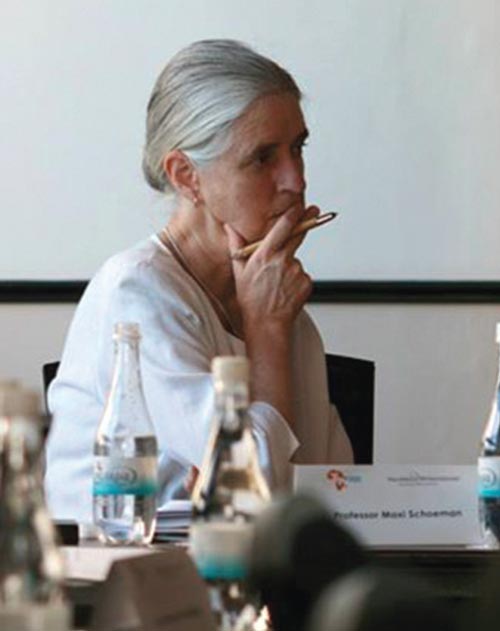 Professor Maxi Schoeman
Professor Maxi Schoeman
The identity claims of states are closely linked to their international status which, in turn, acts as one of the determinants of the ability to project power in the international political system of exchange. As part of the involvement of the Department of Political Sciences in the UP Templeton-funded Ubuntu Project, researchers are analysing and evaluating South Africa’s foreign policy in relation to various identity claims, one of which is that of being an emerging power, aiming to promote the interests of the African continent internationally.
In an article titled, ‘South Africa as an emerging power: from label to status consistency?’, published in the South African Journal of International Affairs (2015), Professor Maxi Schoeman interrogates the status of South Africa as a significant emerging power. The question is whether this status – both ascribed and self-ascribed – implies a certain amount of space for South Africa to exercise influence in the global arena, and whether it is effectively used to realise foreign policy objectives. In short: is South Africa evolving into a ‘power that has power’?
Her research pays specific attention to the domestic constraints on South Africa’s ability and capacity to act globally. For example, a key challenge is to mobilise resources that would allow an emerging power to exercise its international duties and responsibilities. Moving up the ladder of influence requires of a state to look beyond its narrow national interest and to take on global leadership burdens. Further, domestic stability and a strong economic basis are core requirements for becoming a global player, as is so well illustrated by China’s rise as a Global South power. Other resources are also critical – such as location, geography, size (also of population) and levels of education and development. But more important is the ability of a country to ‘make resources operational’ to ensure the credibility and viability of those instruments available to them in the process of policy implementation.
Professor Schoeman argues that domestic factors seriously constrain South Africa’s efforts to act internationally as an emerging power. Sluggish economic growth, high levels of unemployment and inequality, and the crises related to factionalism within the governing party seem to inhibit the country’s ability to project itself as a rising power on the international stage. In fact, these problems may increasingly force the country to turn inward and to lose its status as an emerging power.
Identity, therefore, rests not only on an ascribed or projected status, the latter encapsulated in public statements and policies: it requires access to resources and the capacity and ability to turn those resources into policy instruments in order to consolidate the state’s ability to prove its international standing, and to exercise a level of influence that is credible and realistic in relation to its foreign policy values, ideals and objectives.